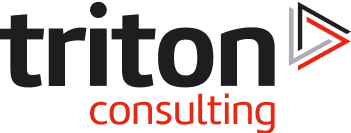Our clients are increasingly using the Distributed Data Facility (DDF) component of Db2 for z/OS database to allow client applications running on different platforms (Linux, Unix, Windows, IBM Z Linux, Cloud) to read and update enterprise data stored on the z/OS platform.
In most cases, this is a strategic investment centred around leveraging the existing and continued investment in the strengths of Db2 for z/OS and the underlying z/OS platform, whilst adopting modern application architectures. Db2 for z/OS data sharing running across z/OS Parallel Sysplex provides unrivalled levels of availability, reliability, security performance, workload management and cost-effective management.
Clients want to modernise applications and integrate with Hybrid Cloud. DDF allows these new cloud-based applications to directly and securely access enterprise data stored in a centralised Db2 for z/OS database. This creates a hybrid architecture where the front-end application platform is modern and the back-end database is rock solid, secure and highly available.
DDF allows new business applications, business intelligence (BI) and analytics tools to directly connect to Db2 for z/OS using industry standard APIs such as JDBC, ODBC/.NET. This allows these applications to access the system of record directly, ensuring they work with a single, consistent source of truth.
DDF also facilitates service-oriented architecture and the use of microservices. Developers can create RESTful APIs using a middleware layer such as IBM z/OS Connect, which sits on top of DDF to provide a modern, easy to use interface for microservices and abstract away from the native underlying structure. In many of our clients, the use of CICS and IMS transaction applications that are locally attached to Db2 for z/OS running on the same z/OS system is declining. All new and replacement applications are using DDF. In some cases, this transformational change is more radical.
However, the widespread industry adoption and sometimes rapid growth within individual clients of using DDF to access Db2 for z/OS can bring significant technical challenges in managing the new application workloads arriving at Db2 for z/OS. Not surprisingly, the relative immaturity of standards, guidelines, processes, procedures and skills. Additional technical challenges include:
- Inability to monitor, control, and isolate at fine granularity individual applications and individual transactions within an application.
- Propensity for users, applications and application servers to be less well behaved in terms of consuming connections and threads.
- Must have the ability to monitor for and control badly behaved users and applications.
- Intermittent, irregular, skewed routing of newly arriving transaction workload towards and shortly later away from individual members of the Db2 for z/OS Data Sharing group.
- Monitoring for and identifying badly behaved applications: preventing thread disconnect at commit, using heavyweight protocol for application concurrency control, driving auto commit after every single SQL update, etc.
- How to identify and address wasteful technical transactions running query validation queries to validate connections before use.
- How to carefully implement High Performance DBATs in a controlled way to reduce CPU resource consumption without causing thread congestion.
Several more beyond the scope of this article.
In summary, DDF is the crucial bridge that connects the unparalleled strengths of Db2 for z/OS database enterprise server and the supporting z/OS platform, with the agility and innovation of the distributed and cloud world. Widespread industry adoption and sometimes rapid growth within individual clients of using DDF can bring significant technical challenges.
Triton Consulting have significant skill and expertise in helping clients be successful with DDF. This skill and expertise are encapsulated in the “Distributed Application Connectivity to Db2 for z/OS” module of our ZMARS service offering. This module can be delivered as a standalone offering to clients or as a part of the overall ZMARS offering.
Contact us to get started.
Email: enquiries@triton.co.uk


